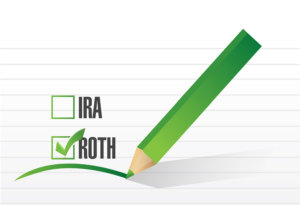A Different Perspective on Roth Conversions
July 19, 2024
To Inform:

Roth conversions are an amazing tool to transfer pre-tax IRA dollars into a Roth IRA where the investments can grow, and any withdrawals can be done tax free. And the most common time to think about doing a Roth conversion is during periods of very low income, especially during retirement. The reason for this is because any dollars taken out of an IRA and into a Roth IRA is taxable at ordinary income rates. So having a low-income year provides an opportunity to convert IRA dollars at a lower tax bracket. But is this the only time to be thinking about Roth conversions?
Absolutely not!
Roth conversions should always be a consideration based on your goals in addition to the financial impact. Let me provide two examples where this may be applicable to your situation.
The first example involves a client who has a goal to pass on their wealth completely tax-free to their children. However, most of their assets are in traditional IRAs. And with current tax law, someone who inherits an IRA is required to withdraw the full account within 10 years from the date of death. This could cause the inheritor to have a very large tax burden, especially if inherited during their highest earning years. But, in order to convert the traditional IRAs into a Roth IRA, the client would have to pay taxes at a very high tax bracket. This may not be the optimal decision financially, but if the primary goal is to pass on wealth tax free and the client is okay with paying the taxes so that their children do not have to worry about taxes at all, Roth conversions provide a great opportunity to achieve that goal.
The second example is a client who is younger, like someone in their 30’s or 40’s, with a sizeable traditional IRA, but not in the highest earning tax brackets like the 32% bracket or higher. This would be an example where doing a Roth conversion in the 22% or 24% brackets may be beneficial because the investments would grow tax free and they would still have 20 or 30 more years of work before having to consider touching the investments. The difficulty with this option is that any dollars converted into a Roth IRA would incur a tax liability, and there may not be excess funds due to lifestyle to pay the additional taxes from the conversion.
There are many different scenarios where a Roth conversion may or may not make sense so if you think that it could work for your situation, we encourage you to reach out to your advisor at The Joseph Group for a more in-depth discussion before acting.

Written by Jacob Kipi, Senior Wealth Advisory Associate